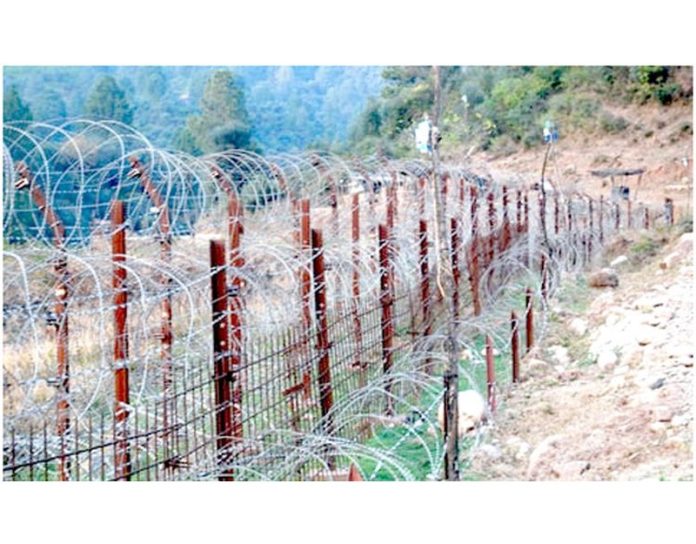NEW DELHI, Feb 6 : India has decided to fence the entire 1,643-km-long India-Myanmar border, Union Home Minister Amit Shah announced on Tuesday.
The move could virtually put an end to the Free Movement Regime (FMR) prevalent along the porous border.
The FMR allows people residing close to the India-Myanmar border to venture 16 km into each other’s territory without any document.
The 1,643-km-long India-Myanmar border, which passes through Mizoram, Manipur, Nagaland and Arunachal Pradesh, currently has FMR. It was introduced in 2018 as part of India’s Act East policy.
Fencing along the border has been a persistent demand of the Imphal Valley-based Meitei groups which have been alleging that tribal militants often enter into India through the porous border.
The Meitei groups also allege that narcotics are being smuggled into India taking advantage of the unfenced international border.
In a post on X, Shah said the Narendra Modi government is committed to building impenetrable borders.
“It has decided to construct a fence along the entire 1643-kilometer-long Indo-Myanmar border. To facilitate better surveillance, a patrol track along the border will also be paved,” he said.
The home minister said a 10-km stretch of the border in Moreh in Manipur has already been fenced.
Furthermore, two pilot projects of fencing through a hybrid surveillance system are under execution.
“They will fence a stretch of 1 km each in Arunachal Pradesh and Manipur. Additionally, fence works covering approx 20 km in Manipur have also been approved, and the work will start soon,” he said.
Manipur shares around 390 km of border with Myanmar, but only about 10 km has been fenced so far. In July last year, the state government shared data that around 700 illegal immigrants entered the state.
Besides, Mizoram has seen an influx of anti-Junta rebels in thousands since the military coup in Myanmar on February 1, 2021. According to government estimates, several thousand refugees are living in different parts of Mizoram since the coup.
Mizoram shares a 510-km-long border with Myanmar.
Manipur Chief Minister N Biren Singh had also said that several persons from Myanmar tried to enter into his state but returned on seeing the presence of a large number of security personnel.
Apart from Manipur and Mizoram, Arunachal Pradesh shares a 520-km border with Myanmar and Nagaland shares a 215-km border with the country.
On February 3, after meeting Shah, the Manipur chief minister said the Centre is set to take “some important decisions” in the interests of the people of the state.
Singh had also held a meeting with senior officials of the Ministry of Home Affairs at the North Block and had “a productive discussion on the strategic measures undertaken for fostering peace in Manipur”.
Manipur has been witnessing sporadic violence.
Ethnic violence broke out in Manipur on May 3, 2023 after a tribal solidarity march was organised in the hill districts to protest against the majority Meitei community’s demand for Scheduled Tribe status. More than 200 people have been killed in the violence.
While a section of Kukis has demanded a separate administration or separation from the Manipur government, the Meitei groups are dead against it and warned legislators against any such design and asked them to foil such attempts.
Meiteis account for about 53 per cent of Manipur’s population and live mostly in the Imphal Valley, while tribals, which include Nagas and Kukis, constitute 40 per cent and reside mainly in the hill districts.
The rest belong to other communities.
Shah paid a four-day visit to the state as part of his efforts to calm down the warring communities. However, intermittent violence continued. (PTI)


